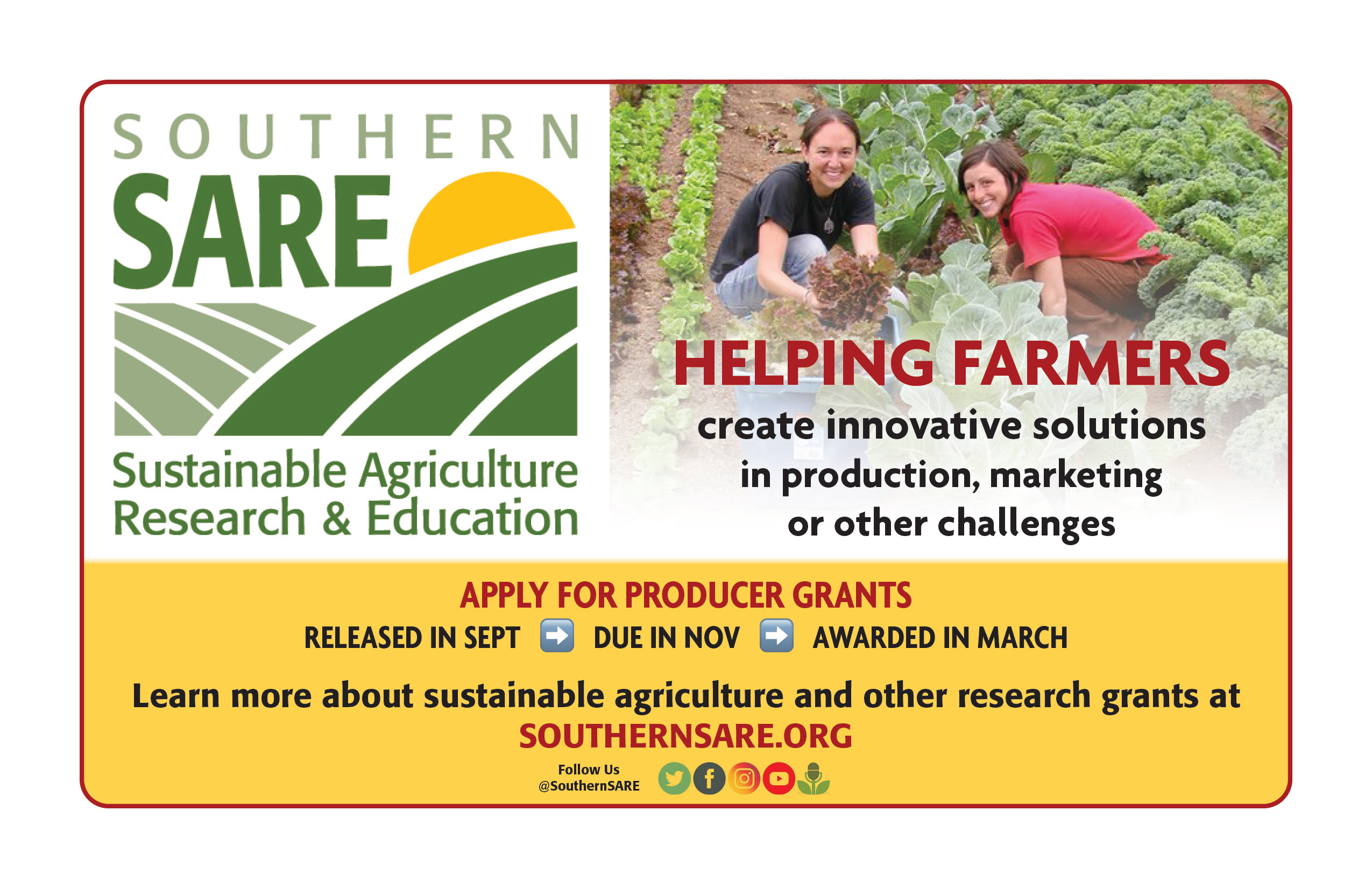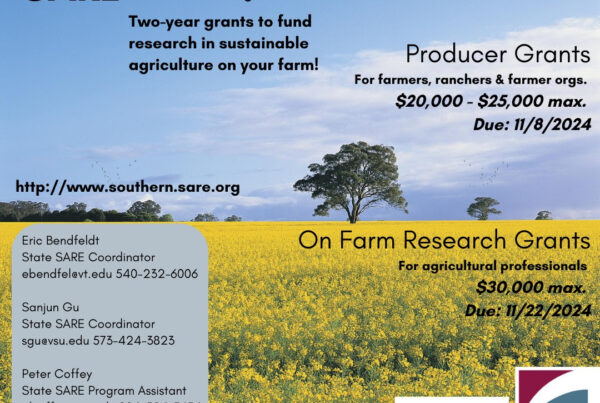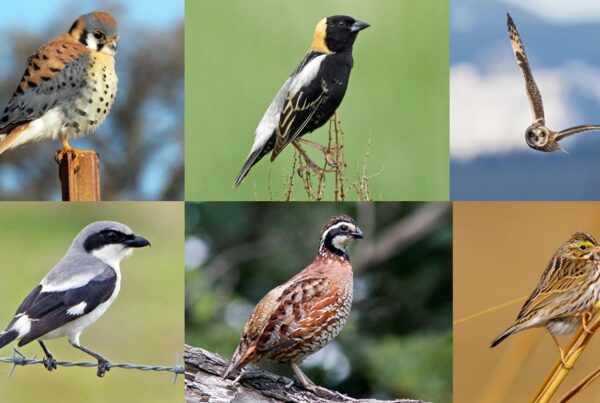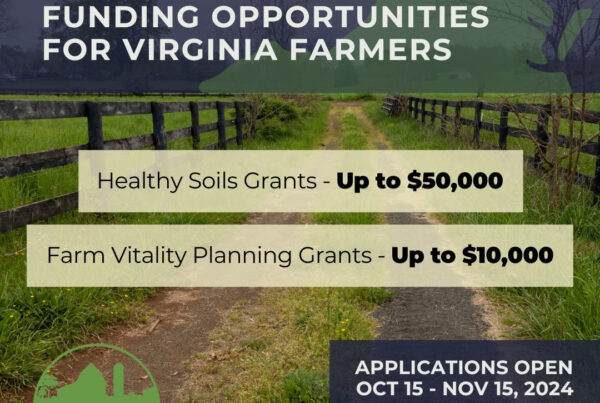Submit a Southern SARE Producer Grant Application
Producer Grants are research grants.
To be considered for funding a project must meet the following criteria:
- Download the Call for Proposal and carefully read the application instructions.
- Producer Grants are open to individual full-time or part-time farmers and ranchers or farmer organizations such as cooperatives.
- Farmer organizations must be comprised primarily of farmers/ranchers and must have majority farmer representation on their governing boards.
- Applicants must complete a proposal describing their project and explaining how it will help other farmers or ranchers understand and adopt sustainable agriculture practices.
- Project outcomes must focus on allowing farmers to test, on a small scale, an idea, practice or technology to a production or marketing problem (either as an individual or as a group), evaluate whether the results sustainably address the problem, and share how those efforts can benefit other farmers.
OTHER INFO
- A project’s central purpose is to conduct sustainable agriculture research projects that solve agricultural production challenges.
- The deadline to submit is November 11, 2022 at 12 p.m. EST (NOON), and full proposals will be awarded in February 2023.
- The maximum funding amount for a Producer Grant is $15,000 for individual farmers/ranchers and $20,000 for farmer/rancher organizations.
- Projects are funded for two years.
- Farmers must have at least $1,000 in documented annual income from the operation.
- There is no restriction on farm size or the length of time an individual has been farming.
- SSARE also considers proposals from indigenous agriculturists who produce for community food systems. These enterprises may be eligible to apply where the production activity has an annual value of at least $1,000, but products are not sold due to cultural factors.
Southern SARE Producer Grants are competitive research grants, designed to take some of the financial risk away from trying a solution to an agricultural production issue. For more information on sustainable agriculture, visit the Southern SARE website.







